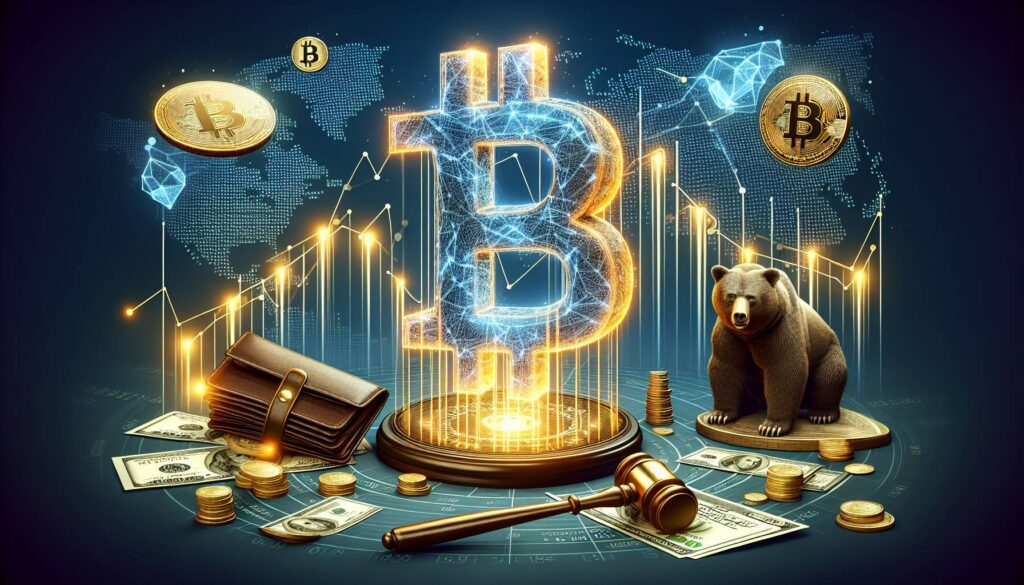In a significant update from the world of finance, JPMorgan Chase CEO Jamie Dimon has raised concerns about the potential repercussions of U.S. President Donald Trump’s recent tariff policy. In his annual letter to shareholders, Dimon cautioned that these tariffs could lead to increased inflation and slow down the U.S. economy, exacerbating fears of a possible recession. He emphasized, “The recent tariffs will likely increase inflation and are causing many to consider a greater probability of a recession.” This sentiment reflects a broader apprehension among investors regarding the economic climate.
“Whatever you think of the legitimate reasons for the newly announced tariffs – and, of course, there are some – or the long-term effect, good or bad, there are likely to be important short-term effects,”
Dimon noted that the impact of rising prices won’t be limited to imported goods, likely spilling over into domestic markets as well. As a result of this uncertainty, global markets—including the cryptocurrency sector—have experienced significant volatility. Since the announcement of these tariffs, Bitcoin (BTC) has witnessed a notable drop, sinking below $79,000, a figure not seen since November. The cryptocurrency market overall, reflected by the CoinDesk 20 index, has plummeted over 10% in a single day and nearly 20% in the past month.
“If the Western world’s military and economic alliances were to fragment, America itself would inevitably weaken over time,”
Despite his critiques, Dimon expressed support for Trump’s “America First” policy, stressing the need for balance and collaboration with global allies. This ongoing situation has led to a more cautious posture among investors, as they navigate the intricate landscape shaped by tariffs and inflationary pressures. As the markets brace for potential fallout, the implications for both traditional financial sectors and alternative assets like cryptocurrency are under heightened scrutiny.

Jamie Dimon’s Warning on Tariff Impacts
JPMorgan Chase CEO Jamie Dimon has addressed significant concerns regarding the U.S. economy and inflation in light of recent tariff policies. Here are the key points from his warning:
- Rising Prices and Inflation:
- Dimon warns that recent tariffs are likely to increase inflation, impacting consumer prices.
- Both imported and domestic goods prices may rise, affecting budgets for households.
- Potential for Economic Slowdown:
- The tariffs may lead to slowed economic growth, raising fears of a recession.
- Investors should be cautious as growth forecasts may be revised downward.
- Impact on Global Markets:
- Global markets, including cryptocurrencies, have seen significant declines due to tariff announcements.
- Bitcoin and other crypto assets have experienced dramatic drops, affecting investment values.
- “America First” Policy Concerns:
- Dimon supports the “America First” policy but cautions against isolationism.
- He warns that fragmented military and economic alliances could weaken the U.S. in the long term.
Impact on Readers:
The economic insights provided by Dimon are crucial for readers as they may directly influence personal finances, investment strategies, and perspectives on U.S. economic policies. Understanding these potential shifts can help individuals better navigate their financial planning and investment decisions amid changing market conditions.
Implications of Dimon’s Warning on Tariffs and Economic Slowdown
In a recent letter to shareholders, JPMorgan Chase CEO Jamie Dimon shed light on the potential ramifications of U.S. President Donald Trump’s tariff policy, providing a stark warning that could affect both local and global markets. Dimon’s assessment points to a looming threat of inflation and a sluggish economy, sparking conversations across various sectors, particularly in finance and trade.
Competitive Advantages: Dimon’s warnings serve to position JPMorgan Chase as a proactive leader in the banking sector, recognizing and addressing economic shifts before they fully materialize. This foresight can reassure investors who may feel hesitant amidst market volatility, potentially attracting new clientele seeking stability. Additionally, understanding the nuances of tariff impacts allows JPMorgan to tailor financial products that protect against inflationary pressures, enhancing its appeal in turbulent times.
Competitive Disadvantages: On the other hand, drawing attention to the adverse effects of tariffs could alienate certain high-risk investors who might question the bank’s ability to navigate potential economic downturns. Moreover, while Dimon advocates for the “America First” approach, his caution against isolationism may create friction with clients who support more aggressive nationalist policies. This delicate balance between supporting government initiatives and warning against their consequences showcases potential pitfalls for the bank’s public image.
Who Benefits or Faces Challenges: Investors closely monitoring the impact of tariffs may find Dimon’s comments particularly beneficial, as they highlight the need for vigilance in their financial strategies. Adjusting portfolios in anticipation of inflation can aid in mitigating losses. Conversely, exporters reliant on smooth international trade may face significant challenges if the tariffs result in higher costs and diminished competitiveness in global markets. Furthermore, consumers are likely to bear the brunt of price increases, particularly in essentials, potentially straining household budgets in the wake of this policy shift.
As global markets react—evident in the significant drop in crypto assets—it becomes crucial for financial institutions and investors alike to adapt rapidly. Dimon’s insights invite us to consider not just immediate effects but long-term strategies in a potentially fragmented global economy.

















